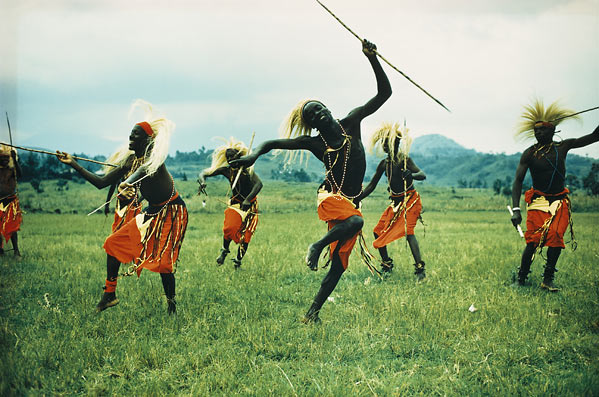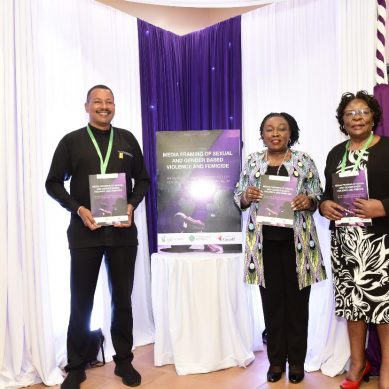
I have been reading about the Pragmatic Theory of Truth advanced by the American, William James (1842-1910). I sense that it has a lot of relevance to Ugandans and all humanity.
I want to share with you all that I have learned and immediately apply it to the Uganda situation.
First let me introduce you to the word pragmatism. Of course you have heard of it in connection with leadership. You have heard some people say such and such a person was or is a pragmatic leader.
Pragmatism is a concept derived by another American, Charles Saunders Peirce (1838-1914), from the Greek word “pragma” (meaning “act” or “deed”). He wanted to emphasise that words derive their meaning from actions of some sort. He, therefore, wanted to emphasise that our ideas are clear and distinct only when we are able to translate them into some mode of operation. When we can do that then we can call ourselves pragmatic.
Every worthwhile idea is a one that is actionable or applicable to life. It must work to improve life to another level. Now let me go to what I learnt about the Pragmatic Theory of Truth.
There are many people who, like the great thinkers in older times, believe that truth is an internal property or quality of an idea. So, when they hold their ideas, they believe truth is found in them and nowhere else. They do not expect or welcome contradiction. They can even take offence if one contradicts them. Indeed, many rulers and academics are of this type.
The assumption is that the ideas they hold copy reality out there accurately so that reality can be understood via only their ideas. They sometimes call themselves men or women of ideas and look down upon anyone else whom they see as useless; Without ideas.
But this arrogant stance, which William James characterised as “copy-view of truth“, gives the false understanding that truth has an inert static relation to an idea. William James instead makes the revolutionary statement that “Truth comes to an idea”; not the other way round”.
What he is saying is that truth must be the cash value of an idea; that an idea is true if it can make concrete difference in one’s life or people’s lives. He is implying that ideas become true or are made true, by events in our environment. So, truth happens to ideas.
Let’s consider President Yoweri Museveni’s ideas of Bona Bagaggawale; Zero Tolerance to Corruption; Operation Wealth Creation; Myooga; Parish Development Model; oil palm growing in Kalangala; hydro-power plant at Bujagali Falls; oil mining in Bunyoro; atomic power plant in Busoga; sugarcane growing in Amuru and Bugoma Forest Game Corridor; universal primary education, universal secondary education; military occupation of Lake Victoria; denigration of the humanities, arts and social science; tax holidays to so-called foreign investors, et cetera.
They were all impositions that were never negotiated or that never arose from our experience. What quantitative and qualitative difference have they made in the lives of Ugandans? What value have they added to the lives of Ugandans? If nothing or little, then the ideas are not true and should be abandoned. They promise what they cannot ensure. “Dhigumaaza”, a Musoga would say of the ideas, meaning “they give false hopes”. They are not transformational but deformational or retrogressive in the long term. They make the people have illusionary hope that the centre can and will change their circumstances.
According to William James “Ideas become true insofar as they help us to make successful connections among various parts of our experience. Truth is, therefore, part of the process of experience, of living. As part of a process, truth is made by the process of successful experience: successful experience is the verification process”.
So, in the context of the above ideas of President Tibuhaburwa Yoweri Museveni can we confidently say that our experience with those ideas has verified them as true?
The evidence on the ground suggests most Ugandans have reaped far more pain from President Tibuhaburwa Museveni’s ideas, individually and collectively, than benefit. If there is any benefit earned it is to a few individuals, mostly connected to power. There are no concrete actions to reduce the pain and enhance benefit for the majority. It seems the majority are set to suffer the pain perennially as the ides continue to benefit an ever-increasing number of people.
Ideas to which no truth has come from experience should normally be abandoned. If they are not abandoned then there must be personal or group interests involved. Outwardly, they believe the ideas will work; inwardly they know the ideas will not work but continue to defend them or enforce them for personal or group interests. Indeed, in Uganda, President Museveni has consistently and persistently told the people that what matters are interests, not identities, although for survival biologically ecologically, culturally, socially, politically, spiritually, ethnically, morally, ethically, academically and intellectually identities are what matter.
Beliefs that are untrue can only work destructively, says William James. Therefore, the belief that it is interests that matter is destructive in the long term. For Ugandans, continuing to listen and believe that interests are superior to identities, can only lead them along the path of extinction the Maoris of New Zealand, the Aboriginals Australia and the Red Indians of Australia have been on for the last 300-400 years as their environment has been changed to serve the interests of immigrants from elsewhere.
William James says his Pragmatic Theory of Truth pushes us to seek the truth as part of our general obligation to do what pays; in the Uganda case, in terms of development, transformation and progress for all.
Apparently, William James’ way to the truth provides a means to solving disputes. Uganda’s environment is full of unresolved questions and disputes but we go on as if nothing is wrong. We have refugee, land, Banyarwanda, citizenship, nationality and other questions still unresolved. We have intellectual crises. We have governance crises. We have legal crises. We have environmental crises. All of these demand resolutions; which makes studies in dispute resolution and management necessary and critical.
One roadblock to resolution of the myriads of questions, crises or disputes in our environment is that there is no national consensus that they exist. What is happening is to postpone to the future. The constitutional recognition of Banyarwanda by the Uganda Constitution 1995 as one of the indigenous groups of Uganda is not only despising Ugandan indigenous groups but also a recipe for future conflicts, chaos and violence in our environment.
It is an imposition on the indigenous groups of Uganda and a pollutant of our environment, which will most likely be rejected by future Ugandans as a carry-over from a conquered and occupied generation of Ugandans.
Another roadblock to resolution of questions, crises and disputes is that, frequently, power has depicted itself as the only one, which names questions, crises and disputes, and decides how to approach any of them. Clearly, in the view of power its ideas and choices are always true, and only itself must chart the pathway to the truth. This habit of mind is in the long-run destructive.
As experience has verified every time a crisis ignites peaceful social movements or demonstrations, the easy response by power has been military. A power wielder spends time, energy and money to prepare itself to subdue the people, control them and generate and sustain them in a sea of fear and violence. The negotiated approach is frequently squeezed out of solutions.
Unfortunately, this is turning Uganda into a potentially and actually security – and peace – poor or deficient country well into the future. One consequence, yet to rear its head, will be destruction of what we now call islands of development, transformation and progress.
For God and my country
- A Tell report / By Oweyegha-Afunaduula / Environmental Historian and Conservationist Centre for Critical Thinking and Alternative Analysis (CCTAA), Seeta, Mukono, Uganda.
About the Centre for Critical Thinking and Alternative Analysis (CCTAA)
The CCTAA was innovated by Hyuha Mukwanason, Oweyegha-Afunaduula and Mahir Balunywa in 2019 to the rising decline in the capacity of graduates in Uganda and beyond to engage in critical thinking and reason coherently besides excellence in academics and academic production. The three scholars were convinced that after academic achievement the world outside the ivory tower needed graduates that can think critically and reason coherently towards making society and the environment better for human gratification. They reasoned between themselves and reached the conclusion that disciplinary education did not only narrow the thinking and reasoning of those exposed to it but restricted the opportunity to excel in critical thinking and reasoning, which are the ultimate aim of education. They were dismayed by the truism that the products of disciplinary education find it difficult to tick outside the boundaries of their disciplines; that when they provide solutions to problems that do not recognise the artificial boundaries between knowledges, their solutions become the new problems. They decided that the answer was a new and different medium of learning and innovating, which they characterised as “The Centre for Critical Thinking and Alternative Analysis” (CCTAA).







